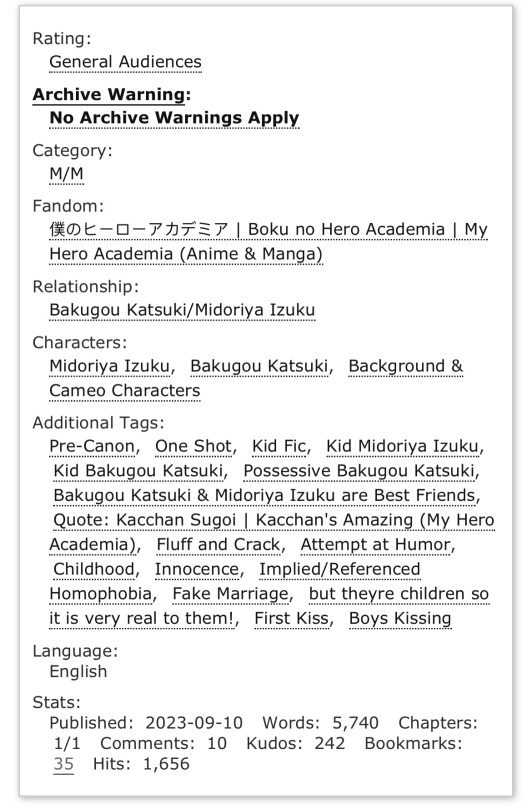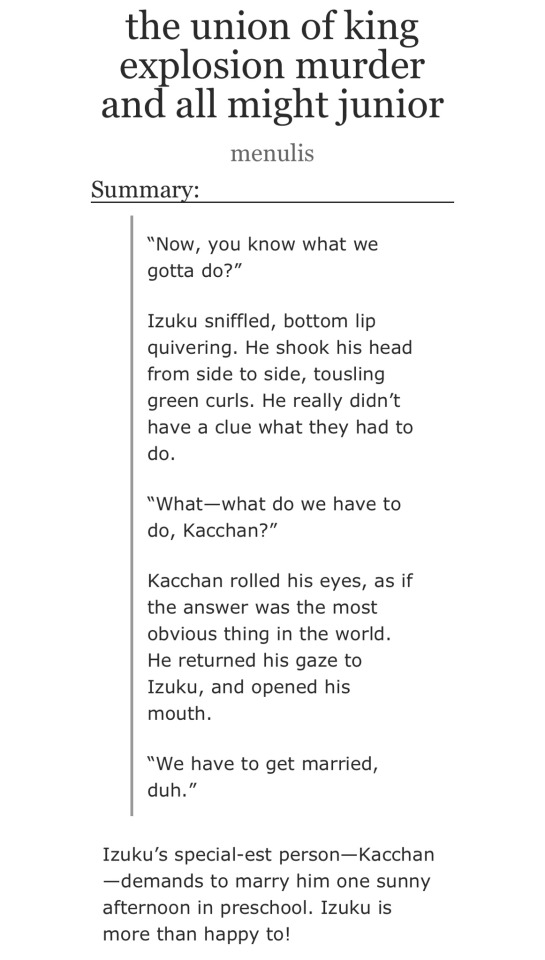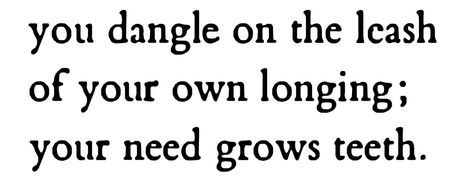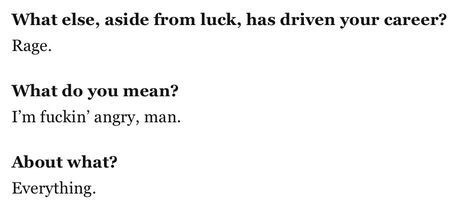🗣Anyone Using A Period Tracker App Needs To Very Strongly Consider Deleting It. Not Now, But RIGHT





🗣Anyone using a period tracker app needs to very strongly consider deleting it. Not now, but RIGHT NOW!

Your personal data that is being collected can and has already been mined and sold to marketing firms and law enforcement. You don’t need to be Margaret Atwood to imagine who your private information might be sold to, or what period-tracking data might be used for in a Republican state, or in a conservative court of law.
I really hate to sound alarmist, but this is Christofascist America in 2022, please protect yourself and act accordingly.
👉🏿 https://www.consumerreports.org/health-privacy/what-your-period-tracker-app-knows-about-you-a8701683935/
👉🏿 https://www.washingtonpost.com/technology/2022/05/04/abortion-digital-privacy/
👉🏿 https://www.newsnationnow.com/business/tech/abortion-data-privacy-question/
More Posts from Princesssarcasm789 and Others

its about time i used this blog for the second reason i made it: to force everyone to read my silly writing on ao3!
take this, my favourite fic i’ve written so far: mini bkdk getting married in preschool. with kid logic and shenanigans.
read. now.


the union of king explosion murder and all might junior
LINK
bkdk, kid fic, fluff and crack, childhood, pre-canon
“Now, you know what we gotta do?”
Izuku sniffled, bottom lip quivering. He shook his head from side to side, tousling green curls. He really didn’t have a clue what they had to do.
“What—what do we have to do, Kacchan?”
Kacchan rolled his eyes, as if the answer was the most obvious thing in the world. He returned his gaze to Izuku, and opened his mouth.
“We have to get married, duh.”
Izuku’s special-est person—Kacchan—demands to marry him one sunny afternoon in preschool. Izuku is more than happy to!
Guys. Please can someone give me good bkdk fics to read that are fluffy without too much intense angst. Like hurt comfort is good too. Confessions and getting together. But with no nsfw PLEASE GOD and also one where they dont mischaracterize them and make izuku an uwu boy and katsuki a discord daddy. SOMEONE PLEASE






How to Change a Life by Stacey Ballis//Happy Haunting by Rare Monk//Only Love Can Hurt Like This by Paloma Faith//The Lovers II by Rene Magritte//Judith Beheading Holofernes by Caravaggio//Serpent & Dove by Shelby Mahurin//Wuthering Heights by Emily Brontë//Jujutsu Kaisen by Akutami Gege
Summer Language Plan
OKAY ! So I’ve got quite a bit of plans for language learning this summer and I was thinking if I post it to tumblr then hopefully it’ll be more than just wishful thinking. SO without further ado, here are my plans.
French (reach B2)
finish Dracula by August 31 (6 pages per day minimum)
at least one hour of active learning a day (grammar practice, vocabulary, etc)
at least five new words each day
write 3,000+ word story
German (reach B2)
at least one hour of active learning a day (grammar practice, vocabulary, etc)
at least five new words each day
translate one poem/song/paragraph a week
Italian (reach A1)
at least one hour and a half of active learning a day (grammar practice, vocabulary, etc)
at least seven new words a day
What does active learning look like?
I’m glad you asked, self. While reading books and listening to music is great for language learning, unless there are comprehension questions at the end, I would consider it passive learning. Here are some active learning exercises that are (hopefully) more interesting than just doing plain textbook drills.
write a sparknotes summary for each episode of a TV show or book you’re engaging with. Bonus points if show/book is in a different language than your summaries, because that requires you to interact with new vocabulary.
find x number of vocabulary terms then weave them into a story or poem. Doesn’t have to be long or complex
film or voice record yourself talking about a topic that means a lot to you, then note down what words and grammar you have yet to learn
books by asian authors
this by no means is a comprehensive list of books, but this may give you a starter point as to where to start reading more about asian experiences and learning about asian culture. hopefully, you will find something you enjoy!
graphic novels
such a lovely little war: saigon 1961-63 and saigon calling: london 1963-75, marcelino truong: the story of a french-vietnamese boy and his family during the vietnam war
almost american girl, robin ha: memoir of a korean girl who moves to america and experiences racism and sexism in high school
year of the rabbit, tian veasna: the tale of a family’s drive to survive the brutal khmer rouge regime
banned book club, kim hyunsook, ryan estrada and ko hyungju: memoir of a girl attending college in korea during the 1980s dictatorship and taking part in a banned book club
cat diary: yon and mu, junji ito: horror comic about a guy who adopts two cats who terrorize him
nonfiction
why we swim, bonnie tsui: swimming’s history, from olympic champions to japanese samurai swimmers
minor feelings, cathy park hong: essay collection of asian experiences of racism in the US
reading lolita in tehran, azar nafisi: an english professor’s experiences during the iranian revolution
all you can ever know, nicole chung: memoir of a korean girl adopted by white parents
family in six tones: a refugee mother, an american daughter, lan cao: memoir of a mother and daughter, the former of whom was a vietnam war refugee
fiction
on earth we’re briefly gorgeous, ocean vuong: a lovely, poetic letter from a vietnamese son to his mother
little fires everywhere, celeste ng: literary novel about a quiet suburban town and seemingly perfect family that changes once a traveling artist and her daughter move to town
the kiss quotient, helen hoang: super feel good romance featuring an autistic protagonist and a hunky swedish-vietnamese love interest
evil and the mask, fuminori nakamura: thriller novel that blew my head off
the windup bird chronicle, haruki murakami: literary novel about a man’s wife who disappeared suddenly and the mysterious journey he embarks on to find her again
pachinko, minjin lee: the multigenerational story of a family of koreans in japan during the early 20th century
prophecy (the dragon king chronicles #1), ellen oh: ya novel set in a korean fantasy landscape about a girl assigned to be the bodyguard to a prince during a demon invasion
run to me earth, paul yoon: the story of 3 orphans struggling to find their way in laos
in addition, i’d like you to notice these two lovely lists by @papenathys and @gaaaandaaaalf at these two links [x, x]. these lists are of south asian writers specifically, if you’re interested in them!
add on your favorite books by asian authors if you’d like in the notes :)
[edit: sorry it was incomplete when i queued it. good thing i checked haha]








The thing you are most
afraid to write,
Write that.
— advice to young writers
How to learn a language when you don’t know where to start:
General Plan:
Weeks 1 and 2: Purpose:
Learn the fundamentals sentence construction
Learn how to spell and count
Start building a phrase stockpile with basic greetings
The Alphabet
Numbers 1 - 100
Subject Pronouns
Common Greetings
Conjugate the Two Most Important Verbs: to be and to have
Basic Definite and Indefinite Articles
Weeks 3 and 4: Purpose:
Learn essential vocabulary for the day-to-day
Start conjugating regular verbs
Days of the Week and Months of the Year
How to tell the time
How to talk about the weather
Family Vocabulary
Present Tense Conjugations Verbs
Weeks 5 and 6: Purpose:
Warm up with the last of the day-to-day vocabulary
Add more complex types of sentences to your grammar
Colours
House vocabulary
How to ask questions
Present Tense Conjugations Verbs
Forming negatives
Weeks 7 and 8: Purpose:
Learn how to navigate basic situations in a region of your target language country
Finish memorising regular conjugation rules
Food Vocabulary and Ordering at Restaurants
Money and Shopping Phrases
Present Tense Conjugations Verbs
Weeks 9 and 10: Purpose:
Start constructing descriptive and more complex sentences
Adjectives
Reflective verbs
Places vocabulary
Weeks 11 and 12: Purpose:
Add more complex descriptions to your sentences with adverbs
Wrap up vocabulary essentials
Adverbs
Parts of the body and medical vocabulary
Tips for Learning a Foreign Language:
Learning Vocabulary:
What vocabulary should I be learning?
There are hundreds of thousands of words in every language, and the large majority of them won’t be immediately relevant to you when you’re starting out.Typically, the most frequent 3000 words make up 90% of the language that a native speaker uses on any given day. Instead try to learn the most useful words in a language, and then expand outwards from there according to your needs and interests.
Choose the words you want/need to learn.
Relate them to what you already know.
Review them until they’ve reached your long-term memory.
Record them so learning is never lost.
Use them in meaningful human conversation and communication.
How should I record the vocabulary?
Learners need to see and/or hear a new word of phrase 6 to 17 times before they really know a piece of vocabulary.
Keep a careful record of new vocabulary.
Record the vocabulary in a way that is helpful to you and will ensure that you will practice the vocabulary, e.g. flashcards.
Vocabulary should be organised so that words are easier to find, e.g. alphabetically or according to topic.
Ideally when noting vocabulary you should write down not only the meaning, but the grammatical class, and example in a sentence, and where needed information about structure.
How should I practice using the vocabulary?
Look, Say, Cover, Write and Check - Use this method for learning and remembering vocabulary. This method is really good for learning spellings.
Make flashcards. Write the vocabulary on the front with the definition and examples on the back.
Draw mind maps or make visual representations of the new vocabulary groups.
Stick labels or post it notes on corresponding objects, e.g when learning kitchen vocabulary you could label items in your house.
How often should I be practising vocabulary?
A valuable technique is ‘the principle of expanding rehearsal’. This means reviewing vocabulary shortly after first learning them then at increasingly longer intervals.
Ideally, words should be reviewed:
5-10 minutes later
24 hours later
One week later
1-2 months later
6 months later
Knowing a vocabulary item well enough to use it productively means knowing:
Its written and spoken forms (spelling and pronunciation).
Its grammatical category and other grammatical information
Related words and word families, e.g. adjective, adverb, verb, noun.
Common collocations (Words that often come before or after it).
Receptive Skills: Listening and Reading
Reading is probably one of the most effective ways of building vocabulary knowledge.
Listening is also important because it occupies a big chunk of the time we spend communicating.
Tips for reading in a foreign language:
Start basic and small. Children’s books are great practice for beginners. Don’t try to dive into a novel or newspaper too early, since it can be discouraging and time consuming if you have to look up every other word.
Read things you’ve already read in your native language. The fact that you at least know the gist of the story will help you to pick up context clues, learn new vocabulary and grammatical constructions.
Read books with their accompanying audio books. Reading a book while listening to the accompanying audio will improve your “ear training”. It will also help you to learn the pronunciation of words.
Tips for listening in a foreign language:
Watch films in your target language.
Read a book while also listening along to the audio book version.
Listen to the radio in your target language.
Watch videos online in your target language.
Activities to do to show that you’ve understood what you’ve been listening to:
Try drawing a picture of what was said.
Ask yourself some questions about it and try to answer them.
Provide a summary of what was said.
Suggest what might come next in the “story.”
Translate what was said into another language.
“Talk back” to the speaker to engage in imaginary conversation.
Productive Skills: Speaking and Writing
Tips for speaking in a foreign language:
If you can, try to speak the language every day either out loud to yourself or chat to another native speaker whether it is a colleague, a friend, a tutor or a language exchange partner.
Write a list of topics and think about what you could say about each one. First you could write out your thoughts and then read them out loud. Look up the words you don’t know. You could also come up with questions at the end to ask someone else.
A really good way to improve your own speaking is to listen to how native speakers talk and imitate their accent, their rhythm of speech and tone of voice. Watch how their lips move and pay attention to the stressed sounds. You could watch interviews on YouTube or online news websites and pause every so often to copy what you have just heard. You could even sing along to songs sung in the target language.
Walk around the house and describe what you say. Say what you like or dislike about the room or the furniture or the decor. Talk about what you want to change.This gets you to practise every day vocabulary.
Tips for writing in a foreign language:
Practice writing in your target language. Keep it simple to start with. Beginner vocabulary and grammar concepts are generally very descriptive and concrete.
Practice writing by hand. Here are some things you can write out by hand:
Diary entries
Shopping lists
Reminders
What could I write about?
Write about your day, an interesting event, how you’re feeling, or what you’re thinking.
Make up a conversation between two people.
Write a letter to a friend, yourself, or a celebrity. You don’t need to send it; just writing it will be helpful.
Translate a text you’ve written in your native language into your foreign language.
Write a review or a book you’ve recently read or a film you’ve recently watched.
Write Facebook statuses, Tweets or Tumblr posts (whether you post them or not will be up to you).
Write a short story or poem.
Writing is one of the hardest things to do well as a non-native speaker of a language, because there’s no room to hide.
There are lots of ways to improve your writing ability, but they can be essentially boiled down to three key components:
Read a lot
Write a lot
Get your writing corrected

30 Day Wall Sit Challenge








glass, irony and good, anne carson // margaret atwood // enough, suzanne buffam // linnea paskow // in conversation: kathleen turner, david marchese // haunted womanhood, heather havrilesky // where to begin, sue zhao // the stream of life, clarice lisepector
-
 magenta-jay liked this · 2 months ago
magenta-jay liked this · 2 months ago -
 mangos-and-cream liked this · 5 months ago
mangos-and-cream liked this · 5 months ago -
 thereosheep reblogged this · 6 months ago
thereosheep reblogged this · 6 months ago -
 thereosheep liked this · 6 months ago
thereosheep liked this · 6 months ago -
 grosse-lisse liked this · 7 months ago
grosse-lisse liked this · 7 months ago -
 boosclues-thespooky liked this · 1 year ago
boosclues-thespooky liked this · 1 year ago -
 voodoo-economics reblogged this · 1 year ago
voodoo-economics reblogged this · 1 year ago -
 midnights-prayer reblogged this · 1 year ago
midnights-prayer reblogged this · 1 year ago -
 azylnnxx liked this · 1 year ago
azylnnxx liked this · 1 year ago -
 aro13aceasfuck liked this · 1 year ago
aro13aceasfuck liked this · 1 year ago -
 caffeinatedkettle liked this · 1 year ago
caffeinatedkettle liked this · 1 year ago -
 poppywine reblogged this · 1 year ago
poppywine reblogged this · 1 year ago -
 rosesaysstuff liked this · 1 year ago
rosesaysstuff liked this · 1 year ago -
 bee-unknown liked this · 1 year ago
bee-unknown liked this · 1 year ago -
 sienna2011 liked this · 1 year ago
sienna2011 liked this · 1 year ago -
 sheeposhcaw liked this · 1 year ago
sheeposhcaw liked this · 1 year ago -
 paper-stadium liked this · 1 year ago
paper-stadium liked this · 1 year ago -
 blueberrymags liked this · 1 year ago
blueberrymags liked this · 1 year ago -
 riri36 liked this · 1 year ago
riri36 liked this · 1 year ago -
 daffodilsoblivion77 reblogged this · 1 year ago
daffodilsoblivion77 reblogged this · 1 year ago -
 gayfanficaddict liked this · 1 year ago
gayfanficaddict liked this · 1 year ago -
 eventidebloom liked this · 2 years ago
eventidebloom liked this · 2 years ago -
 autismnation reblogged this · 2 years ago
autismnation reblogged this · 2 years ago -
 autismnation liked this · 2 years ago
autismnation liked this · 2 years ago -
 mysteriesgalplusdamianthings liked this · 2 years ago
mysteriesgalplusdamianthings liked this · 2 years ago -
 upstartbear5553 reblogged this · 2 years ago
upstartbear5553 reblogged this · 2 years ago -
 ill-d0-it-later reblogged this · 2 years ago
ill-d0-it-later reblogged this · 2 years ago -
 infinitityandperception liked this · 2 years ago
infinitityandperception liked this · 2 years ago -
 connietheo liked this · 2 years ago
connietheo liked this · 2 years ago -
 theghostnamedspecter liked this · 2 years ago
theghostnamedspecter liked this · 2 years ago -
 bittersweetcountess reblogged this · 2 years ago
bittersweetcountess reblogged this · 2 years ago -
 bittersweetcountess liked this · 2 years ago
bittersweetcountess liked this · 2 years ago -
 brightness-st liked this · 2 years ago
brightness-st liked this · 2 years ago -
 intellectualrebel reblogged this · 2 years ago
intellectualrebel reblogged this · 2 years ago -
 mysteyguy89 liked this · 2 years ago
mysteyguy89 liked this · 2 years ago -
 bitchwitchwhatever liked this · 2 years ago
bitchwitchwhatever liked this · 2 years ago -
 ywewy reblogged this · 2 years ago
ywewy reblogged this · 2 years ago -
 essenceofcreativedisposition liked this · 2 years ago
essenceofcreativedisposition liked this · 2 years ago